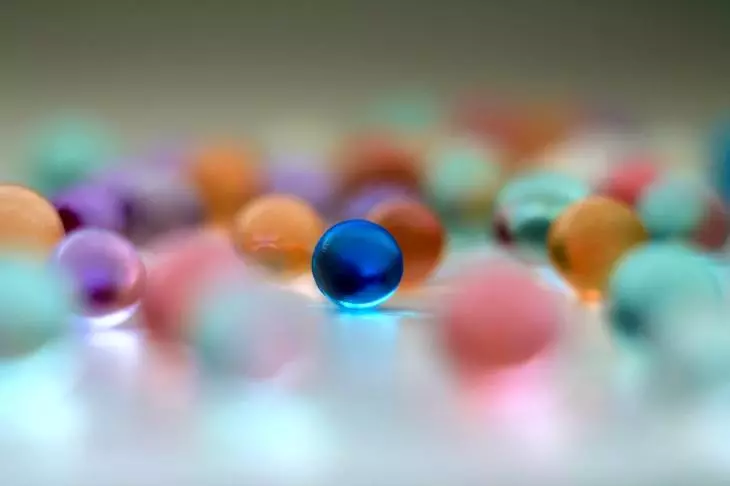
Hydrogel balls capable of absorbing water a thousand times more than their weight, seem ideal for use as a tiny underground water tanks. Theoretically, when the soil dries, the hydrogels isolated water to hydrate the roots of plants, thereby saving water and increasing the yield of crops even in drought conditions.
However, the addition of hydrogels to farmer fields gives ambiguous results.
In his work, princeton scientists have demonstrated an experimental platform. It allows you to observe hydrogels in soils, as well as in other compressed closed environments.
The platform is based on two ingredients: a transparent granular medium, namely packing of glass balls, as a substitute for soil, and water containing a chemical, called ammonium thiocyanate. This chemical is skillfully changing the refractiveness of light by water, compensating for distorting effects that would usually have round glass beads. As a result, scientists can see a color hydrogel ball in the middle of artificial soil.
"My laboratory specialization is the search for the desired chemical in the right concentrations to change the optical properties of liquids," said Datta, Associate Professor of the Department of Chemical and Biological Engineering in Princeton and Senior Author of the study published in the Journal Science Advances on February 12. - This feature provides three-dimensional visualization of fluid flows and other processes that occur in usually inaccessible, opaque environments such as soil and stones. "
Scientists have used the installation to demonstrate that the amount of water stored by hydrogels is controlled by the balance between the force attached with the swelling of the hydrogel with water and the restraining force of the surrounding soil.
As a result, softer hydrogels absorb a large amount of water when mixing with surface layers of the soil, but do not work so well in the depth, where the growing pressure is experiencing.
Instead, rigid hydrogels, synthesized with increased internal transverse bonds, could better resist the pressure of the soil and, accordingly, they maintained efficiency.
Datta said that, guided by these results, engineers will now be able to carry out further experiments to adapt the chemistry of hydrogels to specific cultures and soil conditions.
"Our results provide recommendations for the development of hydrogels that can optimally absorb water depending on the soil in which they are intended for use, potentially helping to satisfy the growing need for food and water," said Datta.
The source of inspiration for scientific work was that the Datt found out about the huge prospects of using hydrogels in agriculture, but in some cases farmers remained dissatisfied and believed that they spent money in vain.
(Source: www.eurekalert.org).
